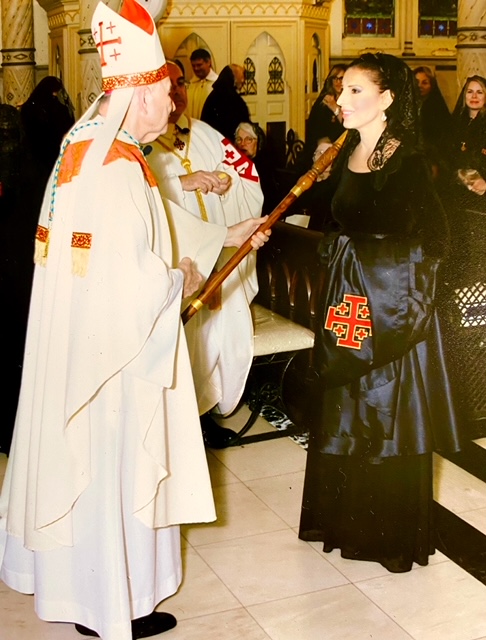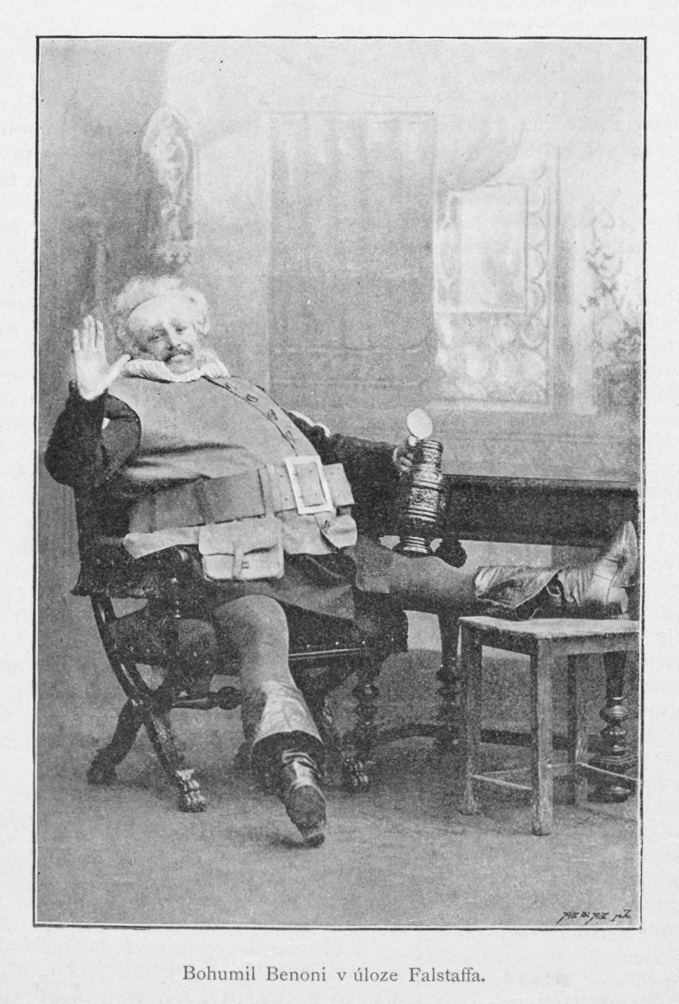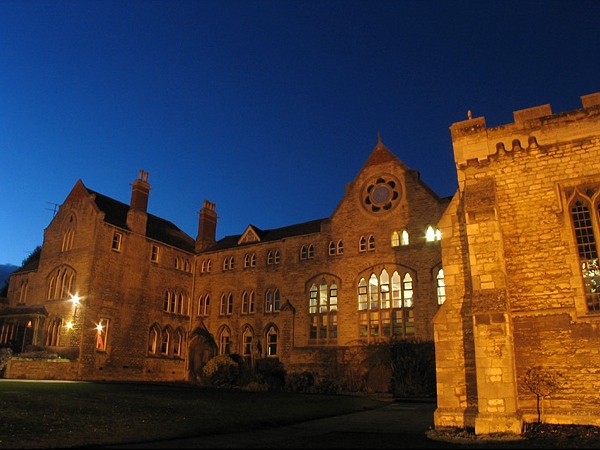|
Josephine Barstow
Dame Josephine Clare Barstow, (born 27 September 1940) is an English operatic soprano. Education and early career Josephine Barstow was born in Sheffield and educated at the University of Birmingham. She made her professional debut (Mimì in ''La bohème'') with the touring company Opera for All in 1964. She won a scholarship to study during 1965–66 at the London Opera Centre, where she met her husband Ande Anderson (d. 1996). During the following season, she sang Gluck's Euridice and Verdi's Violetta for the Sadler's Wells Opera Company and in 1968 she began a three-year contract with Welsh National Opera. In 1969 she made her Royal Opera debut as one of the nieces in ''Peter Grimes''. Subsequent career Among other roles with the Royal Opera, she has sung Alice Ford (''Falstaff''), Santuzza (''Cavalleria rusticana''), Ellen Orford in ''Peter Grimes'', Leonore (''Fidelio'') and the Old Countess ('' The Queen of Spades''). She also appeared in the world premières of two o ... [...More Info...] [...Related Items...] OR: [Wikipedia] [Google] [Baidu] |
Dame
''Dame'' is a traditionally British honorific title given to women who have been admitted to certain orders of chivalry. It is the female equivalent of ''Sir'', the title used by knights. Baronet, Baronetesses Suo jure, in their own right also use the title ''Dame''. A woman appointed to the grades of Dame Commander or Dame Grand Cross of the Order of Saint John (Bailiwick of Brandenburg), Order of Saint John, the Order of the Holy Sepulchre (Catholic), Order of the Holy Sepulchre, the Order of the Bath, the Order of Saint Michael and Saint George, the Royal Victorian Order, or the Order of the British Empire becomes a dame. A Central European order in which female members receive the rank of Dame is the Order of St. George (Habsburg-Lorraine), Order of Saint George. Since there is no female equivalent to a Knight Bachelor, women are always appointed to an Order (distinction), order of chivalry. Women who are appointed to the Order of the Garter or the Order of the Thistle are gi ... [...More Info...] [...Related Items...] OR: [Wikipedia] [Google] [Baidu] |
Falstaff (opera)
''Falstaff'' () is a comic opera in three acts by the Italian composer Giuseppe Verdi. The Italian-language libretto was adapted by Arrigo Boito from the play ''The Merry Wives of Windsor'' and scenes from ''Henry IV, Part 1'' and ''Henry IV, Part 2, Part 2'', by William Shakespeare. The work premiered on 9 February 1893 at La Scala, Milan. Verdi wrote ''Falstaff'', the last of his 26 operas, as he approached the age of 80. It was his second comedy, and his third work based on a Shakespeare play, following ''Macbeth (Verdi), Macbeth'' and ''Otello''. The plot revolves around the thwarted, sometimes farcical, efforts of the fat knight Sir John Falstaff to seduce two married women to gain access to their husbands' wealth. Verdi was concerned about working on a new opera at his advanced age, but he yearned to write a comic work and was pleased with Boito's draft libretto. It took the collaborators three years from mid-1889 to complete. Although the prospect of a new ... [...More Info...] [...Related Items...] OR: [Wikipedia] [Google] [Baidu] |
Aida
''Aida'' (or ''Aïda'', ) is a tragic opera in four acts by Giuseppe Verdi to an Italian libretto by Antonio Ghislanzoni. Set in the Old Kingdom of Egypt, it was commissioned by Cairo's Khedivial Opera House and had its première there on 24 December 1871, in a performance conducted by Giovanni Bottesini. Today the work holds a central place in the operatic canon, receiving performances every year around the world. At New York's Metropolitan Opera alone, ''Aida'' has been sung more than 1,100 times since 1886. Ghislanzoni's scheme follows a scenario often attributed to the French Egyptologist Auguste Mariette, but Verdi biographer Mary Jane Phillips-Matz argues that the source is actually Temistocle Solera. Elements of the opera's genesis and sources Isma'il Pasha, Khedive of Egypt, commissioned Verdi to write an opera to celebrate the opening of the Suez Canal, but Verdi declined. However, Auguste Mariette, a French Egyptologist, proposed to Khedive Pasha a plot for a cele ... [...More Info...] [...Related Items...] OR: [Wikipedia] [Google] [Baidu] |
Salome (opera)
''Salome'', Op. 54, is an opera in one act by Richard Strauss. The libretto is Hedwig Lachmann's German translation of the 1891 French play '' Salomé'' by Oscar Wilde, edited by the composer. Strauss dedicated the opera to his friend Sir Edgar Speyer. The opera is famous (at the time of its premiere, infamous) for its " Dance of the Seven Veils". The final scene is frequently heard as a concert-piece for dramatic sopranos. Composition history Oscar Wilde originally wrote his ''Salomé'' in French. Strauss saw the Lachmann version of the play in Max Reinhardt's production at the Kleines Theater in Berlin on 15 November 1902, and immediately set to work on an opera. The play's formal structure was well-suited to musical adaptation. Wilde himself described ''Salomé'' as containing "refrains whose recurring ''motifs'' make it so like a piece of music and bind it together as a ballad". Strauss pared down Lachmann's German text to what he saw as its essentials, and in the proc ... [...More Info...] [...Related Items...] OR: [Wikipedia] [Google] [Baidu] |
War And Peace (opera)
''War and Peace'' (Op. 91) (, ''Voyna i mir'') is a 1946 230-minute opera in 13 scenes, plus an overture and an epigraph, by Sergei Prokofiev. Based on the 1869 novel '' War and Peace'' by Leo Tolstoy, its Russian libretto was prepared by the composer and Mira Mendelson. The first seven scenes are devoted to peace, the latter six, after the epigraph, to war. Although Tolstoy's work is classified as a novel, the 1812 invasion of Russia by the French was a historical event, and some real-life people appear as characters in both the novel and the opera, e.g. Prince Mikhail Kutuzov and Napoleon Bonaparte. Composition history Mendelson and Prokofiev's original scheme for the libretto of the opera envisaged 11 scenes, and Prokofiev began composing the music in the summer of 1941, spurred on by the German invasion of the Soviet Union which began on June 22, 1941. The description "lyric-dramatic scenes" in the libretto accurately suggests both a homage to Tchaikovsky's ''Eugene On ... [...More Info...] [...Related Items...] OR: [Wikipedia] [Google] [Baidu] |
The Makropulos Affair (opera)
''The Makropulos Affair'' (also ''The Makropoulos Case'', ''The Makropulos Secret'', or in ) is a Czech opera in 3 acts, with music and libretto by Leoš Janáček. Janáček based his opera on the play '' Věc Makropulos'' by Karel Čapek. Composed between 1923 and 1925, ''The Makropulos Affair'' was his penultimate opera and, like much of his later work, was inspired by his infatuation with Kamila Stösslová, a married woman much younger than himself. The opera received its world premiere at the National Theatre in Brno on 18 December 1926, conducted by František Neumann. Composition history Janáček had seen the play early in its run in Prague on 10 December 1922 and immediately saw its potential as an opera. He entered into a correspondence with Čapek, who was accommodating towards the idea, but legal problems in securing the rights to the play delayed work. When these problems resolved on 10 September 1923, Janáček began work on the opera. By December 1924, he had c ... [...More Info...] [...Related Items...] OR: [Wikipedia] [Google] [Baidu] |
English National Opera
English National Opera (ENO) is a British opera company based in London, resident at the London Coliseum in St Martin's Lane. It is one of the two principal opera companies in London, along with The Royal Opera. ENO's productions are sung in English. The company's origins were in the late 19th century, when the philanthropist Emma Cons, later assisted by her niece Lilian Baylis, presented theatrical and operatic performances at the Old Vic, for the benefit of local people. Baylis subsequently built up both the opera and the theatre companies, and later added a ballet company; these evolved into the ENO, the Royal National Theatre and The Royal Ballet, respectively. Baylis acquired and rebuilt the Sadler's Wells theatre in north London, a larger house, better suited to opera than the Old Vic. The opera company grew there into a permanent ensemble in the 1930s. During the Second World War, the theatre was closed and the company toured British towns and cities. After the war, the ... [...More Info...] [...Related Items...] OR: [Wikipedia] [Google] [Baidu] |
Idomeneo
(Italian for ''Idomeneus, King of Crete, or, Ilia and Idamante''; usually referred to simply as ''Idomeneo'', Köchel catalogue, K. 366) is an Italian-language opera seria by Wolfgang Amadeus Mozart. The libretto was adapted by Giambattista Varesco from a French text by Antoine Danchet, based on a 1705 play by Prosper Jolyot de Crébillon , Crébillion père, which had been set to music by André Campra as ''Idoménée'' in 1712. Mozart and Varesco were commissioned in 1780 by Charles Theodore, Elector of Bavaria, Karl Theodor, Elector of Bavaria for a court carnival. He probably chose the subject, though it may have been Mozart. The work premiered on 29 January 1781 at the Cuvilliés Theatre in Munich, Germany. Composition The libretto clearly draws inspiration from Metastasio in its overall layout, the type of character development, and the highly poetic language used in the various numbers and the ''secco'' and ''stromentato'' recitatives. The style of the choruses, marches, a ... [...More Info...] [...Related Items...] OR: [Wikipedia] [Google] [Baidu] |
Glyndebourne Festival Opera
Glyndebourne Festival Opera is an annual opera festival held at Glyndebourne, an English country house near Lewes, in East Sussex, England. History Under the supervision of the Christie family, the festival has been held annually since 1934, except in 1941–45 during World War II and 1993 when the theatre was being rebuilt, for a 1994 reopening. Gus Christie, son of Sir George Christie and grandson of festival founder John Christie, became festival chairman in 2000. Since the company's inception, Glyndebourne has been particularly celebrated for its productions of Mozart operas. Recordings of Glyndebourne's past historic Mozart productions have been reissued. Other notable productions included their 1980s production of George Gershwin's ''Porgy and Bess'', directed by Trevor Nunn, and later expanded from the Glyndebourne stage and videotaped in 1993 for television, with Nunn again directing. While Mozart operas have continued to be the mainstay of its repertory, the comp ... [...More Info...] [...Related Items...] OR: [Wikipedia] [Google] [Baidu] |
The Ice Break
''The Ice Break'' is an English-language opera in three acts, with music and libretto to an original scenario by Sir Michael Tippett. The opera received its premiere at the Royal Opera House, Covent Garden on 7 July 1977, conducted by Colin Davis, the dedicatee of the opera. One meaning of the opera's title is a reference to the actual physical breaking of ice on the frozen northern rivers, signaling the advent of spring. The composer has said that the subject of the opera is "whether or not we can be reborn from the stereotypes we live in." John Warrack has noted that the work "confronts questions of stereotype on a wider scale" compared to Tippett's earlier operas, and also in a contemporary setting. Tippett himself put this line on a preface page to a published score of the opera, the opening of François Villon's ''Ballade des pendus:'': :"Brother humans who live after us, do not harden your hearts against us." Performance history A German translation was given at the ... [...More Info...] [...Related Items...] OR: [Wikipedia] [Google] [Baidu] |
The Knot Garden
''The Knot Garden'' is the third opera by composer Michael Tippett for which he wrote the original English libretto. The work had its first performance at the Royal Opera House, Covent Garden, on 2 December 1970 conducted by Sir Colin Davis and produced by Sir Peter Hall. There is a recording with the original cast. Performance history The first American performance was in 1974 at Northwestern University, and the first German performance in 1987 at the Musiktheater im Revier in Gelsenkirchen. In 1984 Tippett authorised Meirion Bowen to create a reduced orchestration for a revival with the London Sinfonietta at the Wilde Theatre, conducted by Howard Williams. The reduced version has been revived six times, with productions in Britain, America, Australia, and Austria. There was a revival at the Royal Opera House in 1988, directed by Nicholas Hytner and, in 2005, Scottish Opera produced the opera for the Tippett centenary. Roles Synopsis Act 1 The psychiatrist Mangus introduces ... [...More Info...] [...Related Items...] OR: [Wikipedia] [Google] [Baidu] |
Michael Tippett
Sir Michael Kemp Tippett (2 January 1905 – 8 January 1998) was an English composer who rose to prominence during and immediately after the Second World War. In his lifetime he was sometimes ranked with his contemporary Benjamin Britten as one of the leading British composers of the 20th century. Among his best-known works are the oratorio ''A Child of Our Time'', the orchestral '' Fantasia Concertante on a Theme of Corelli'', and the opera '' The Midsummer Marriage''. Tippett's talent developed slowly. He withdrew or destroyed his earliest compositions, and was 30 before any of his works were published. Until the mid-to-late 1950s his music was broadly lyrical in character, before changing to a more astringent and experimental style. New influences—including those of jazz and blues after his first visit to America in 1965—became increasingly evident in his compositions. While Tippett's stature with the public continued to grow, not all critics approved of these changes i ... [...More Info...] [...Related Items...] OR: [Wikipedia] [Google] [Baidu] |







